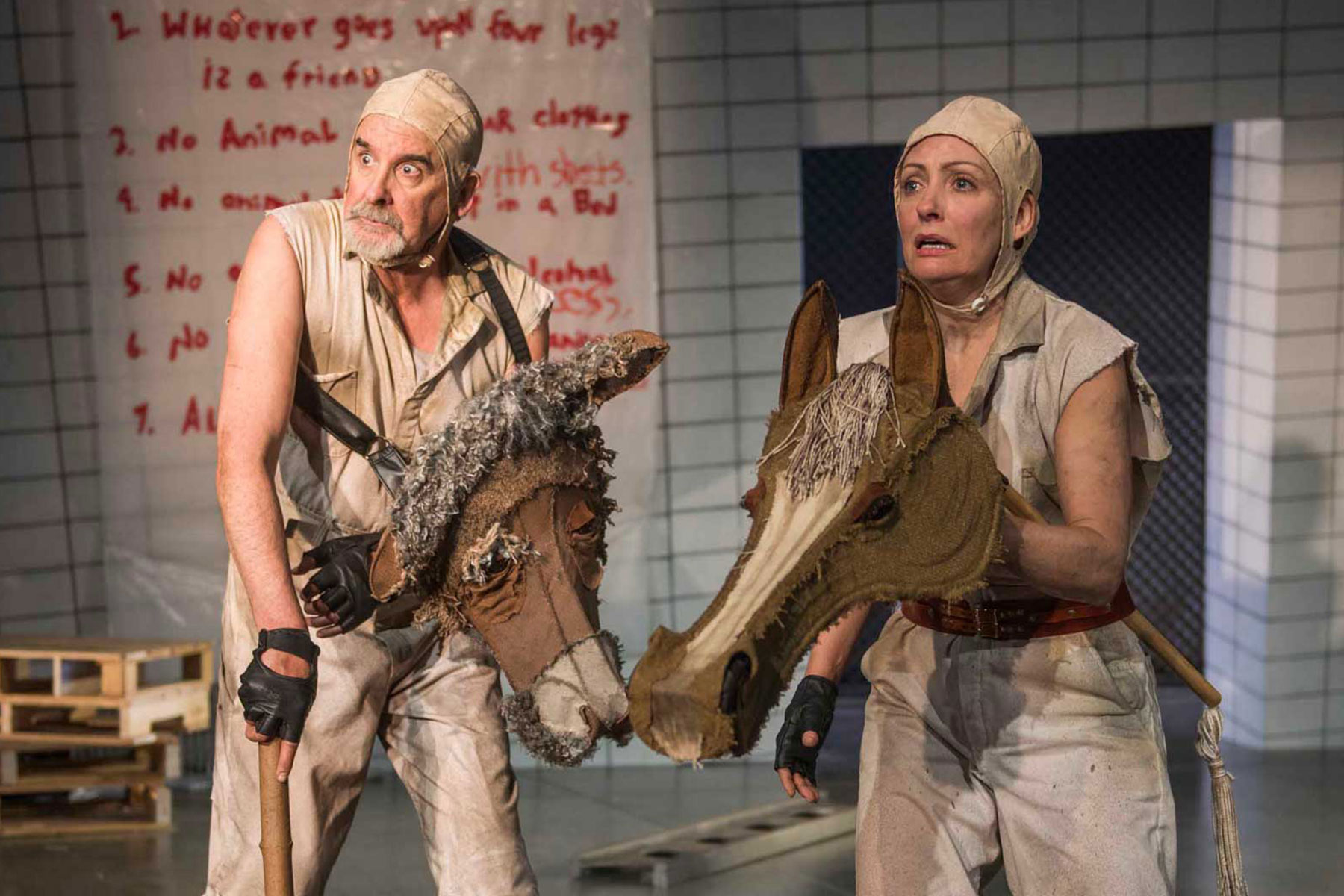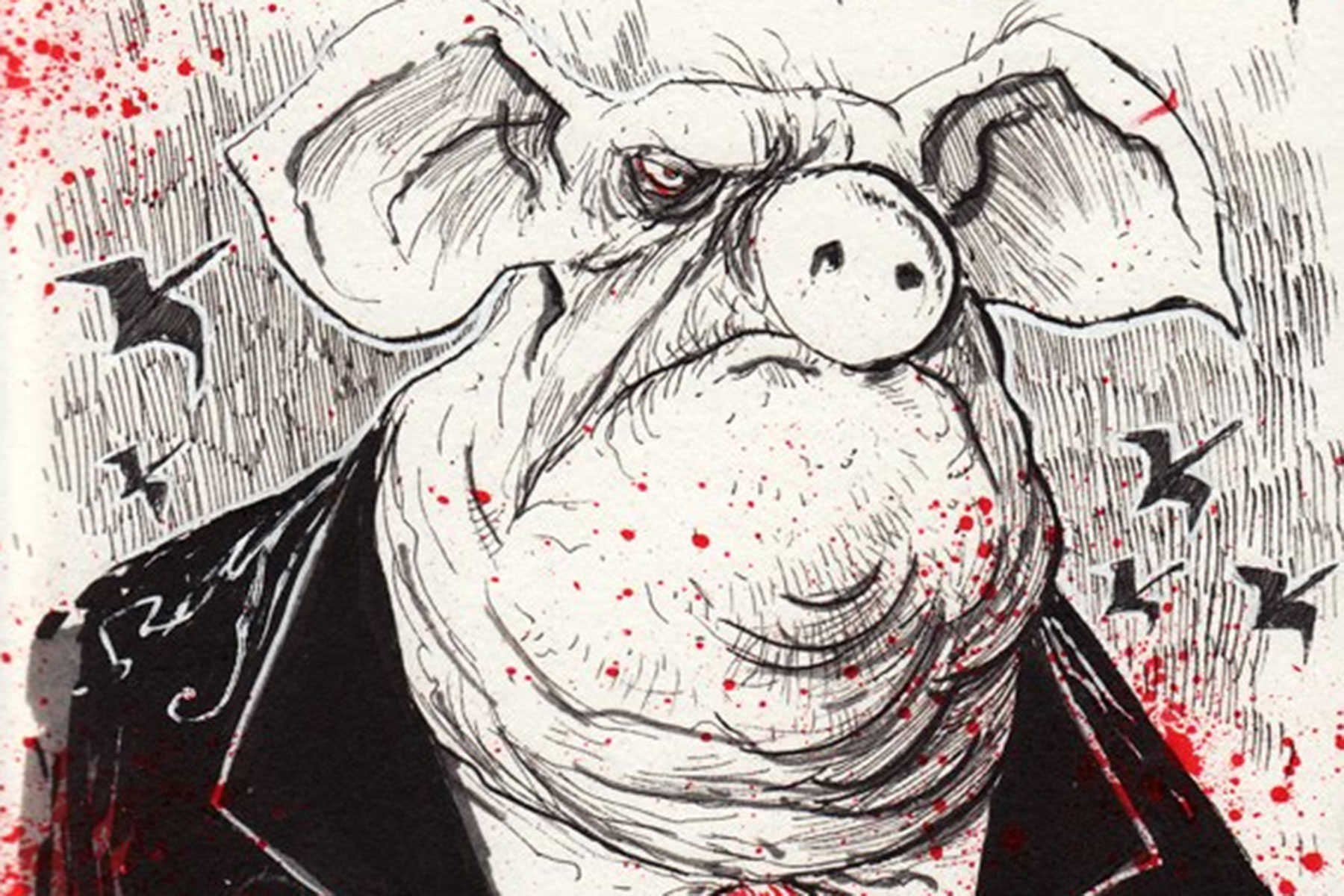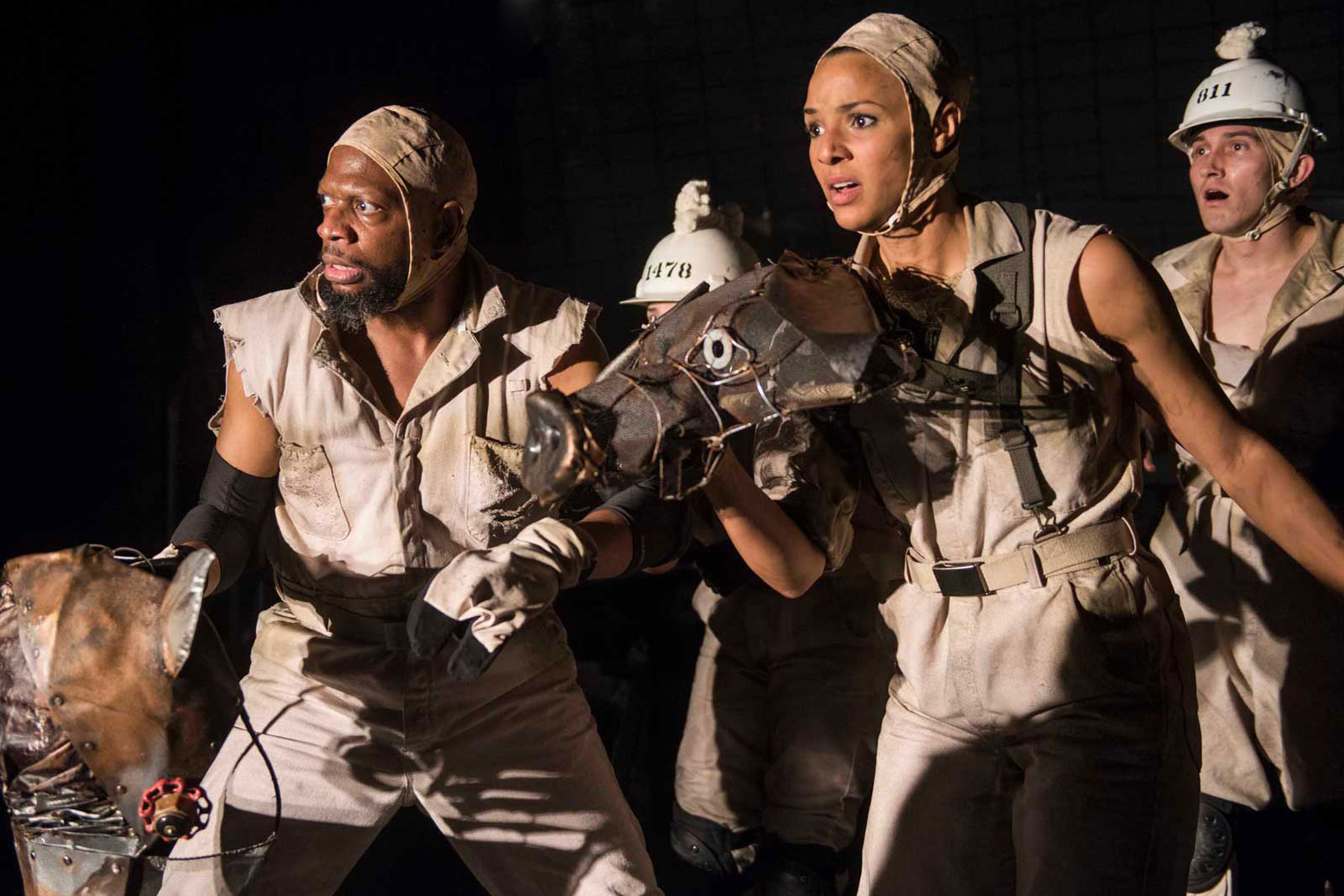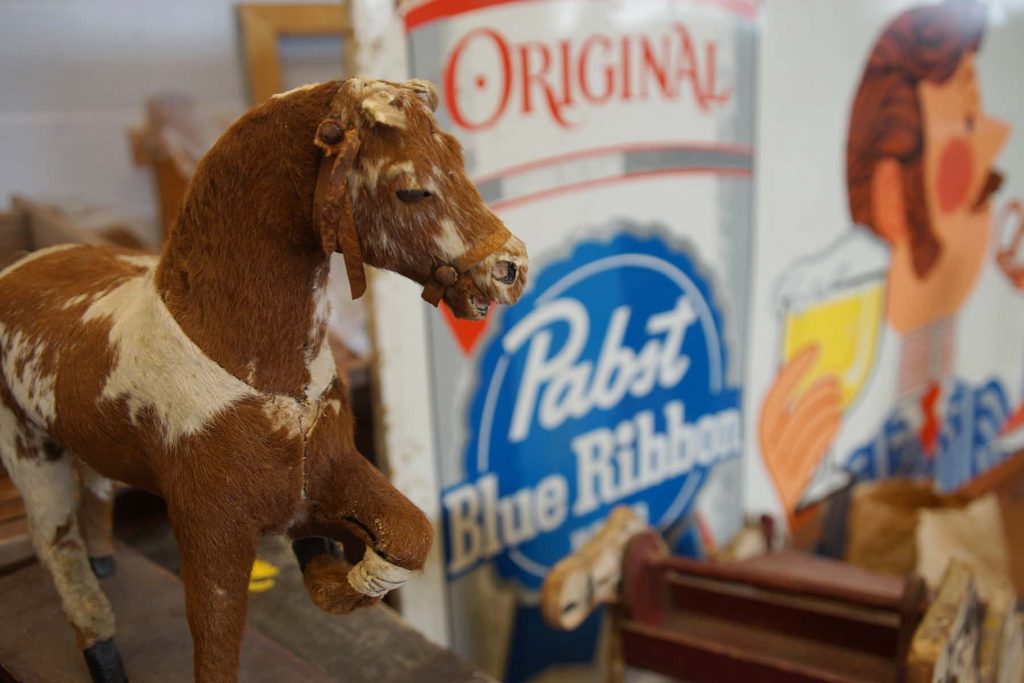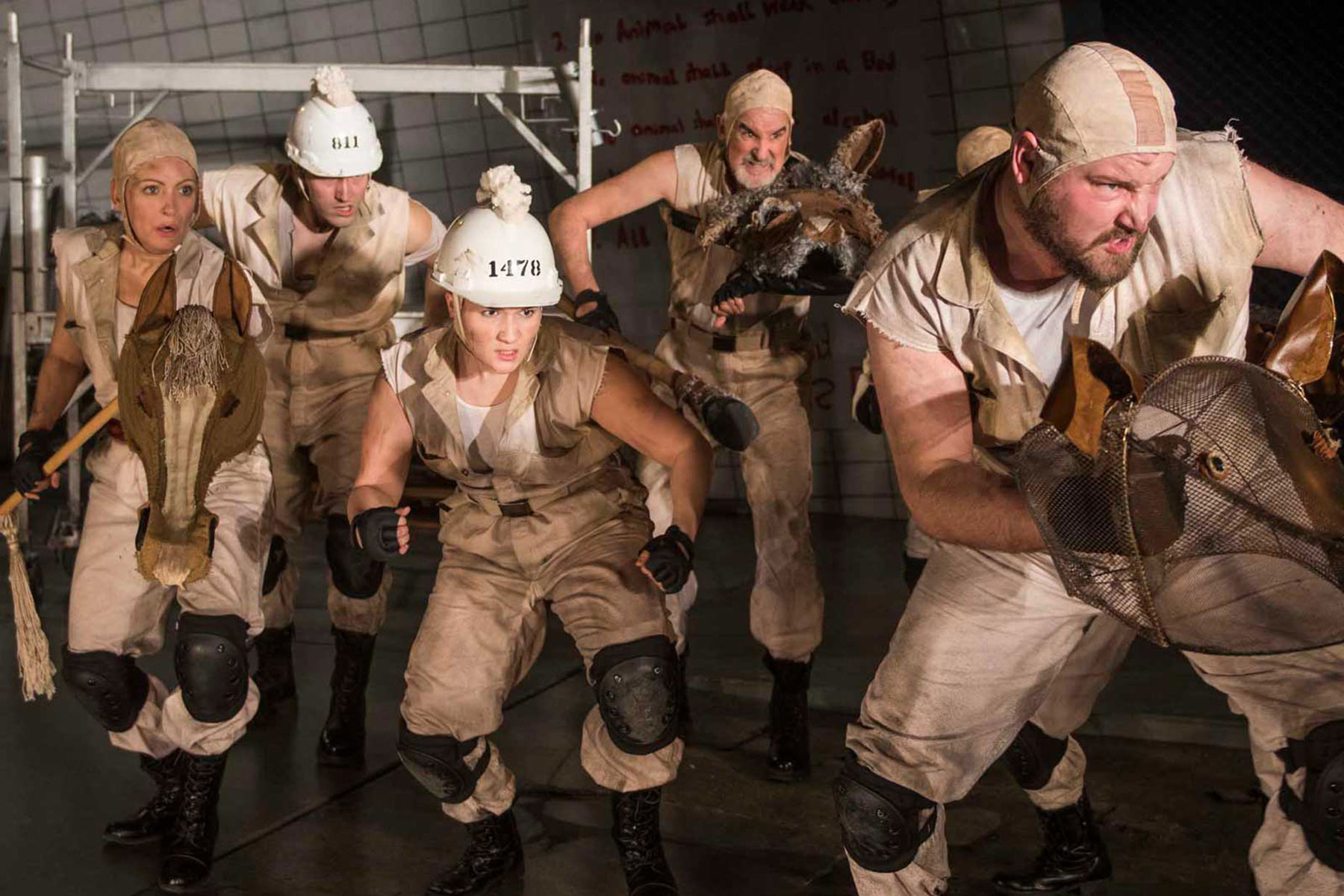
“All animals are equal, but some animals are more equal than others.”
– Animal Farm’s surviving credo
Animal Farm is among the most famous political novels of all time and it remains a timeless and devastating allegory of idealism betrayed by the desire for personal power. When the animals of Manor Farm drive out their abusive farmer, they take over running the farm for themselves. Their experiment in collective leadership succeeds – until the pigs step into the vacuum of power created by the farmer’s expulsion, and betray the ideals of freedom and equality for all animals.
“The most important lesson that I’ve learned is that true enemy of all of us who want to make the world a better place is not actually capitalism, or conservatism, it is actually our own cynicism, our own sense that nothing ever changes, our own sense that no one else gives a shit, that all those people who are in charge are all exactly the same and are only in it for themselves. We have to fight to overcome that cynicism.” – Billy Bragg at an August 2014 benefit for Ferguson, in St. Louis, Missouri
At a time when polls show millennials favoring socialism over capitalism, and we are constantly bombarded with examples of crude populism and apparent corruption from the White House, the Milwaukee Repertory Theatre is staging a production of George Orwell’s “Animal Farm.”
Set in a one room slaughterhouse throughout, this production features a stable of farm animals who collectively revolt against the exploitation of the “two leg” Farmer Jones. Pigs, horses and others are cleverly portrayed by a talented cast in costuming that is more symbolic than enveloping – carrying animal heads in front and an occasional switching broomstick tail to the rear.
Commonly described as an allegorical, even comical expose of Stalinism in the no longer extant Soviet Union, Orwell’s 1940’s tale was adapted for stage in 2004 and has been touted by the Milwaukee Rep for its current relevance.
It is therefore necessary to ask how effectively does this production raise questions about uncritical acceptance of authoritarian populist leaders, relying on a divisive and racist appeal. Its clearest message, a broad and even uncritical attack on revolutionary sentiments, rather crudely suggests that collective movements for equality and against authoritarian, racist control, and exploitation are doomed to failure, so it is a waste of time.
The latter is explicitly stated at the end of the play: that exploitation and dominance is inevitable anyway. Or, as stated in the guest director’s program note: “There will always be pigs. The only change will be the identity of the masters.” She adds an appeal for “education,” concluding that it “is the only real weapon against tyranny.” But no mention of organizing or collective movements of any kind. The note also ends with a warning from Orwell that critical thinking “needs a constant struggle.” It is a sufficient struggle just to think critically, let alone get involved in the dangerous field of political activity.
Most of The Reps’s cast of six play multiple roles and exclusively animals. Longtime Rep favorites Deborah Staples and Jonathan Gillard Daly are exceptions. Staples adds needed light to the descending tale with her charm and compassion exclusively as the mare Clover, while Daly switches roles between two legged farmers and Benjamin, the wiser-than-most and skeptical donkey.
Two African-Americans play important roles. The cast’s most outstanding performance is that of Stephanie Weeks as Boxer, a literal workhorse whose role as a not-too-brilliant but ever loyal and physical over-performer begins to raise stereotypical concerns. Boxer is convinced that whatever the pig leader Napoleon says “must be right” even when she had directly observed and recalled the opposite, only to be pressured out of retaining these truths.
The other Black actor, Melvin Abston, is primarily cast as Napoleon, the character most central to the play, and written as a stand in for Joseph Stalin. A clever pig, he turns from leader to tyrant, eventually selling out his peers and principles, and maybe worse. By the end he appears suited up so fancily, except for his eventually protruding hooves, as to conjure up the stereotypical image of a Black urban “sell out” politician, or maybe a Robert Mugabe figure.
The racial identity of the casting of Napoleon might be ignored – after all the Rep committed itself to color blind casting years ago. Except that it is impossible to ignore Abston’s alternating role as Moses, presented as a raven, but using an unmistakable Black southern accent and preacher style, and with a gospel choir at that. His message is to dream of “Sugar Candy Mountain,” or a “Pie in the Sky” redemption after death. Amusing a reprieve from the play’s unfolding reality, it is up for debate about the color blind casting.
It is entirely appropriate, if not essential, for drama to challenge the audience to be critical thinkers, to question authority and the re-writing of events, and to reject lies and repression. It is another thing to make a broad and uncritical indictment of social movements for change as being pointless as well as dangerous.
One of the film versions of Animal Farm, presumably the 1954 animation which the CIA had covertly funded and produced, ended with a plea to the effect that “next time maybe we can do better.” The Rep should consider that message when considering another run of this production.
© Photo
Milwaukee Repertory Theatre

